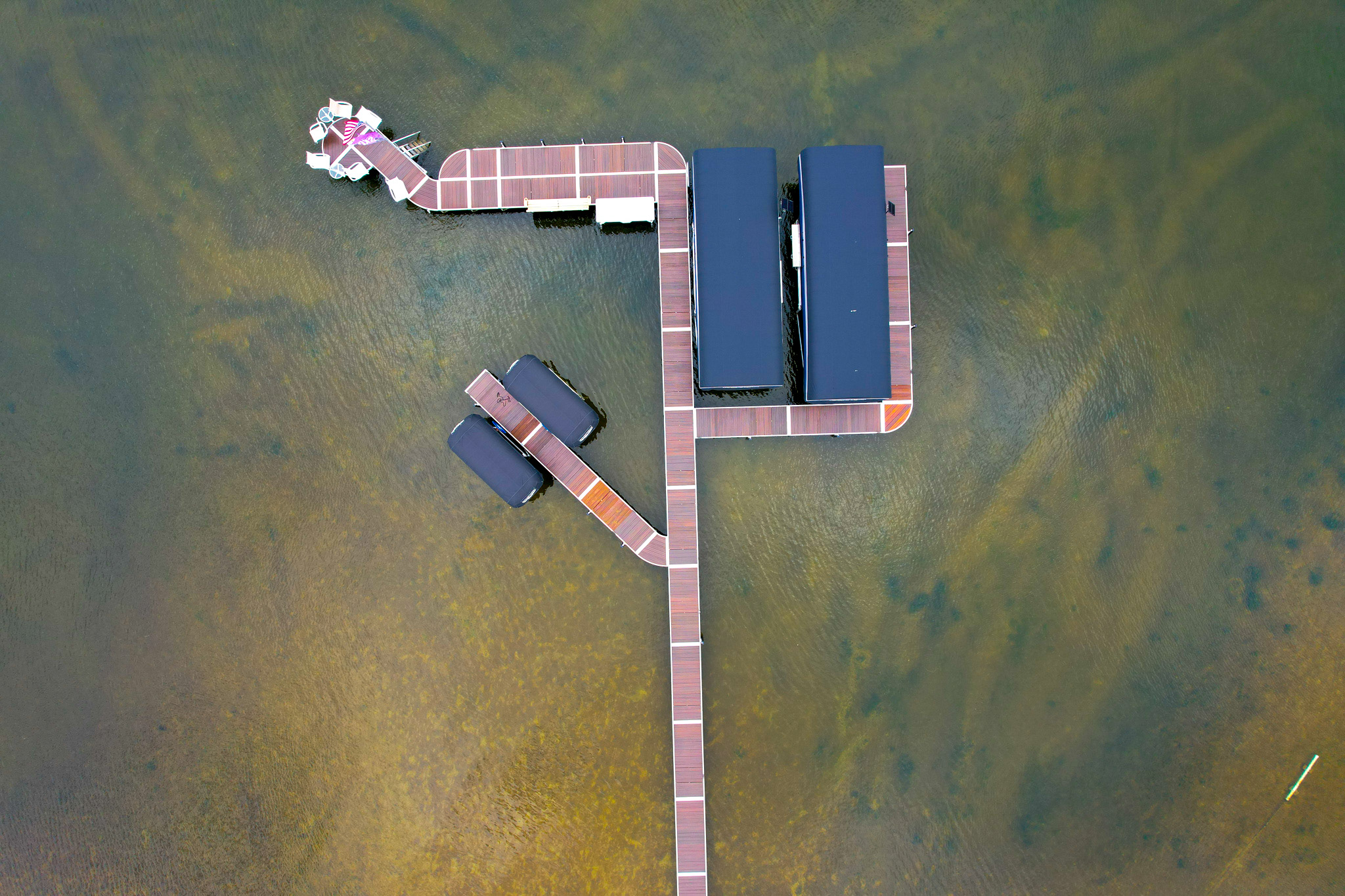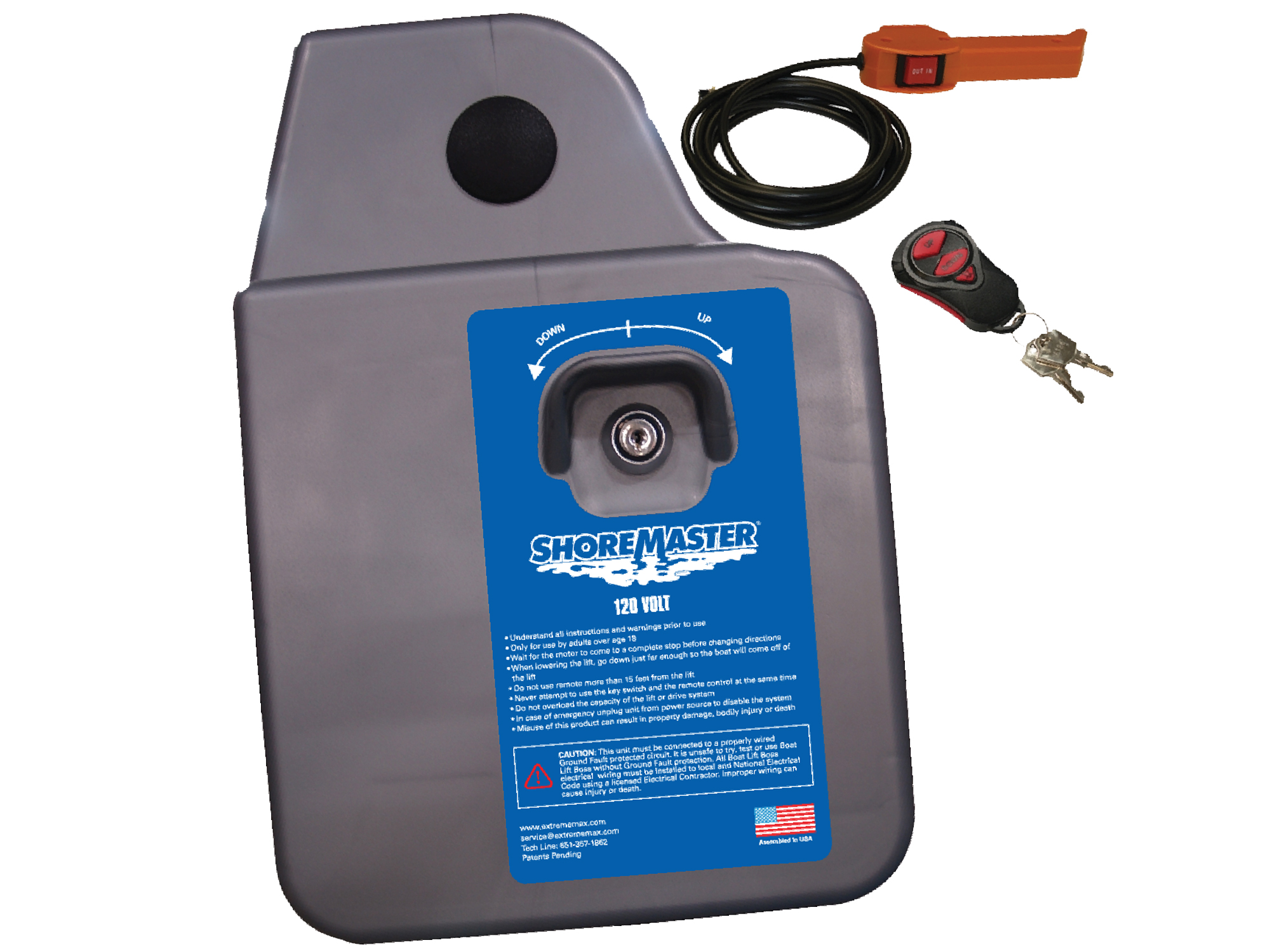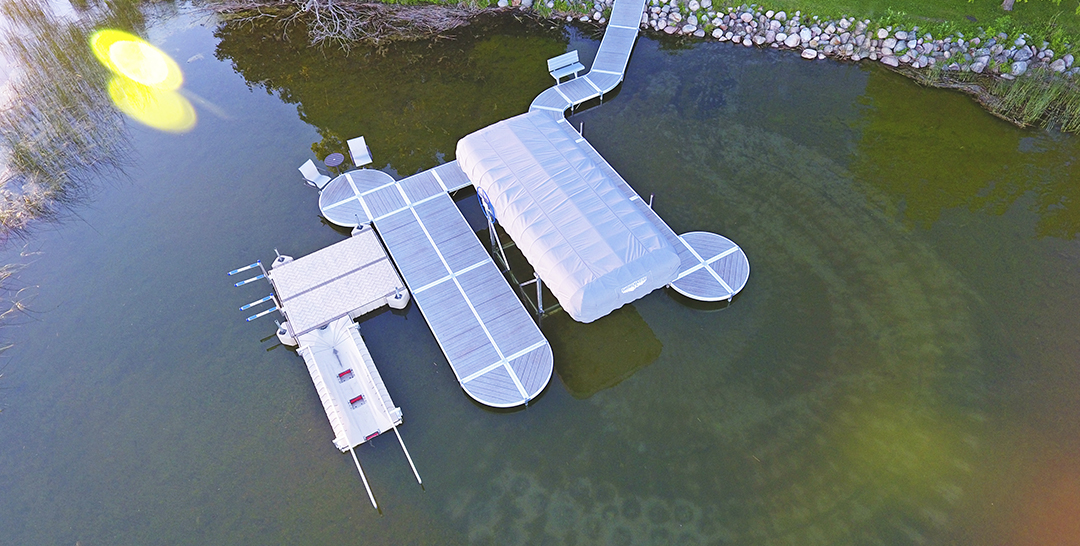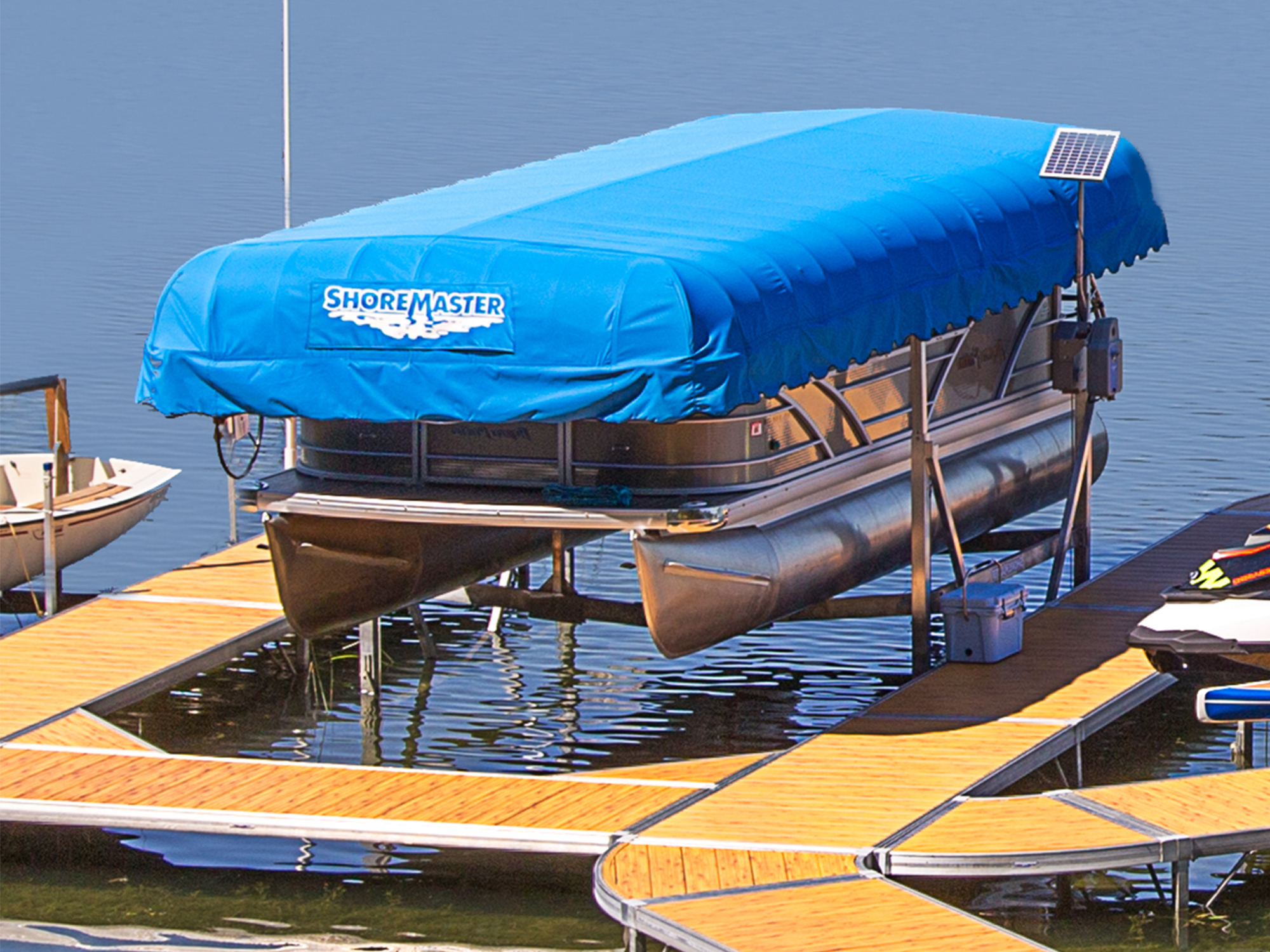August 24, 2023
Your Complete Guide to Dock Decking Choices
Written by ShoreMaster Marketing
Get off on the right foot with dock decking that meets your needs. From the look and feel of real wood, the simplicity of plastic, the wood and plastic composite combination, and the durability of aluminum, there are a lot of choices out there. We can walk you through them.
Without decking, you don’t have a dock. You’ll have several connected frames, maybe some flotation devices, and possibly a few dock accessories around the perimeter, but there won’t be a dock. You need something to stand and walk on to have a dock. Here are the pros and cons of common dock decking options.

Real Wood Decking
Wood is the traditional choice for boat docks, and many dock owners insist there’s nothing quite like it. Wood docks absorb heat on hot days, which makes them wonderful to walk on during cooler days. Pressure-treated wood is often used in these docks to help with durability, but many of the woods used for wood decking contain natural oils and tannins that help resist rot, decay, and insects without potentially harmful treatment options. Each type of wood will require the same level of maintenance, which is the main drawback of natural wood dock systems. Wooden decking needs to be power washed at least annually, finished or stained every three to four years, and sanded to maintain its beauty and remain nice to walk on.
Composite or Plastic Decking
If real wood decking sounds overwhelming to maintain, composite decking is also a good option. Composite decking uses a blend of wood and plastics for added durability and reduced maintenance (no need to sand, stain, or refinish). Because there are still wood fibers in composite decking, it will still require maintenance, namely that cleanliness is crucial to prevent mildew and mold growth.
Plastic decking often gets lumped into a category with composite docking but has key differences. Unlike composite decking, plastic decking has no organic materials and is made entirely from polyethylene, polypropylene, polyvinyl chloride, or a combination of these polymers. They’re a little lighter and shinier than composite decking, and because you’re not constantly treating it with chemicals, it’s very eco-friendly to use. It won’t rot but might expand, contract, or otherwise feel unstable after extended use.
Aluminum Decking
Aluminum is a very modern choice, and many consider it the best decking option. Aluminum is a lightweight but durable metal that can withstand salt- and freshwater conditions without damage. Unlike wood and plastic, it won’t rot, warp, decay, or twist and doesn’t require as much cleaning. It tends to stay cooler in the sun because it dissipates heat faster. It’s also possible to powder coat, paint, or anodized aluminum, which opens up an array of color options—including wood grain patterns, for those who want the traditional look of wood without the hefty maintenance requirements. It will be more costly than other options for all these benefits, but when you consider how long you want your dock system to last, aluminum decking feels less like an expense and more like an investment.
Your Best Dock Decking Choices
When comparing aluminum docks vs. wood docks, the choice can, understandably, be overwhelming, especially for the first-time dock owner confronted with a catalog of options. Ultimately, each dock owner will pick the best decking option for their style, waterfront, and maintenance needs. ShoreMaster’s network of local dealers can help dock owners choose the right boat dock decking options for their waterfront’s unique needs. Get in touch online to find a dealer in your area to get started.



